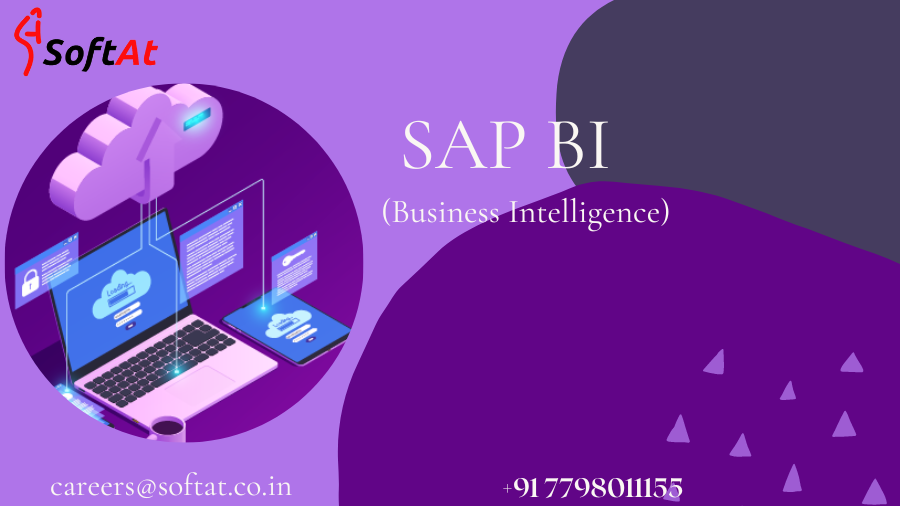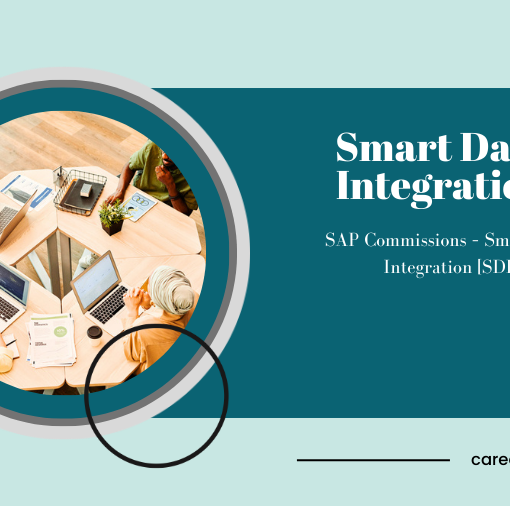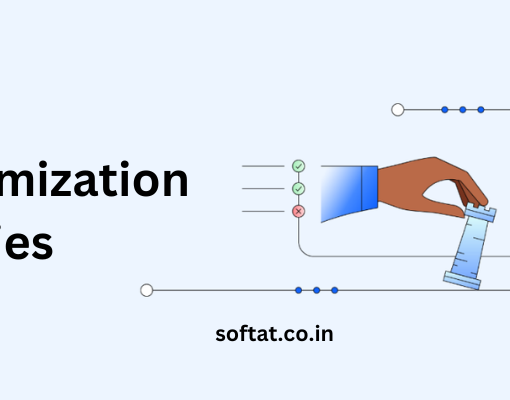SAP BI (Business Intelligence) is a data analysis and reporting tool that helps businesses gain insights into their data to make better-informed decisions. SAP BI is a part of SAP Business Objects, a suite of business intelligence applications offered by SAP. Here’s a detailed overview of SAP Business Intelligence, its features, and its benefits.
Overview:
SAP Business Intelligence is a comprehensive business intelligence tool that provides a complete view of your business by integrating data from various sources. It allows businesses to analyze and visualize their data, create reports, and share insights with stakeholders. SAP Business Intelligence is designed to be a user-friendly tool, with a simple and intuitive interface that requires little to no training.
Features:
Data Integration: SAP BI allows you to integrate data from multiple sources, including databases, spreadsheets, and other data systems. The tool can process large amounts of data quickly and provides a unified view of your data for analysis and reporting.
Reporting: SAP BI provides a variety of report options, including interactive dashboards, scorecards, and ad-hoc reporting. Reports can be customized to meet specific needs and can be shared with other users within your organization.
Analytics: SAP Business Intelligence provides a range of analytical tools, including predictive analytics, data mining, and statistical analysis. These tools help businesses identify patterns and trends in their data, and make predictions about future outcomes.
Mobile Access: SAP Business Intelligence provides mobile access to reports, dashboards, and data visualizations. This allows users to access information on the go and make decisions in real time.
Collaboration: SAP BI allows users to collaborate on reports and data visualizations, facilitating cross-functional collaboration within the organization.
Security: SAP BI provides a high level of security, with user authentication and authorization, data encryption, and access control
Benefits of SAP BI
Improved Decision Making: SAP Business Intelligence provides businesses with a comprehensive view of their data, allowing them to make better-informed decisions. With SAP Business Intelligence, businesses can analyze their data in real-time and gain insights into key trends and patterns. This enables businesses to identify opportunities and make decisions that are based on data, rather than intuition or guesswork.
Increased Efficiency: SAP Business Intelligence streamlines data analysis and reporting, saving time and effort for businesses. With SAP BI, businesses can automate routine tasks, such as data collection and report generation. This allows employees to focus on more strategic tasks, such as data analysis and decision-making.
Increased Visibility: SAP BI provides businesses with real-time visibility into their data, enabling them to respond quickly to changes in the business environment. With SAP BI, businesses can monitor key performance indicators (KPIs) and track progress against their goals. This enables businesses to identify potential problems and take corrective action before they become serious issues.
Better Collaboration: SAP BI facilitates cross-functional collaboration within the organization, enabling teams to work together more effectively. With SAP BI, employees can share data and insights with each other, facilitating communication and collaboration. This enables teams to work together to solve problems and make decisions that benefit the organization as a whole.
Cost Savings: SAP BI helps businesses to identify inefficiencies and optimize their operations, leading to cost savings. With SAP Business Intelligence, businesses can identify areas where they are overspending or underperforming and take corrective action. This enables businesses to reduce costs and increase profits.
Customized Reporting: SAP Business Intelligence provides a range of reporting options, including interactive dashboards, scorecards, and ad-hoc reporting. Reports can be customized to meet specific needs and can be shared with other users within your organization. This enables businesses to create reports that are tailored to their specific needs, providing insights that are relevant and actionable.
Mobile Access: SAP Business Intelligence provides mobile access to reports, dashboards, and data visualizations. This allows users to access information on the go and make decisions in real time. This is particularly useful for businesses that have employees who work remotely or travel frequently.
Predictive Analytics: SAP Business Intelligence provides a range of analytical tools, including predictive analytics, data mining, and statistical analysis. These tools help businesses identify patterns and trends in their data, and make predictions about future outcomes. This enables businesses to make decisions that are based on data, rather than guesswork.
Security: SAP BI provides a high level of security, with user authentication and authorization, data encryption, and access control. This ensures that only authorized users have access to sensitive data, reducing the risk of data breaches and other security threats.
Challenges of SAP BI
Implementing SAP BI can be challenging, especially for businesses with limited technical expertise. Some common challenges include:
Data Integration: Integrating data from multiple sources can be challenging, especially if the data is inconsistent or incomplete.
Technical Expertise: Implementing SAP Business Intelligence requires technical expertise, which may be lacking in some organizations.
Cost: Implementing SAP BI can be expensive, especially for small businesses with limited budgets.
User Adoption: Encouraging user adoption of SAP Business Intelligence can be challenging, especially if users are resistant to change.
Is SAP BI and BW the same?
No, SAP BI (Business Intelligence) and SAP BW (Business Warehouse) are not the same, although they are related and often used together.
SAP BW is an integral component of the SAP Business Intelligence suite. It is a data warehousing solution that is specifically designed for organizing and managing structured data from various sources within an organization. SAP BW provides a robust infrastructure for data extraction, transformation, and loading (ETL), data modeling, data storage, and data retrieval. It allows businesses to consolidate and integrate data from different systems, such as ERP (Enterprise Resource Planning) systems, databases, and other applications.
On the other hand, SAP BI encompasses a broader set of tools and applications that enable organizations to collect, analyze, and visualize data to gain insights and make informed decisions. It includes components like SAP BusinessObjects BI Platform, SAP Lumira, SAP Crystal Reports, and SAP Analytics Cloud. SAP BI focuses on data analysis, reporting, and visualization, allowing users to create interactive dashboards, reports, and ad-hoc queries. It provides capabilities for advanced analytics, predictive modeling, and self-service business intelligence.
While SAP BW primarily focuses on data warehousing and data management, SAP BI focuses on data analysis and reporting. However, both SAP BW and SAP BI can be used together to build a comprehensive business intelligence solution. SAP BW serves as the backend data warehouse, providing a structured and organized foundation for data analysis and reporting within the SAP BI environment.
Conclusion:
SAP BI is a powerful business intelligence tool that provides businesses with a comprehensive view of their data. It allows businesses to analyze and visualize their data, create reports, and share insights with stakeholders. SAP BI can help businesses improve decision-making, increase efficiency, and achieve cost savings. While implementing SAP Business Intelligence can be challenging, the benefits it provides make it a worthwhile investment for many businesses





